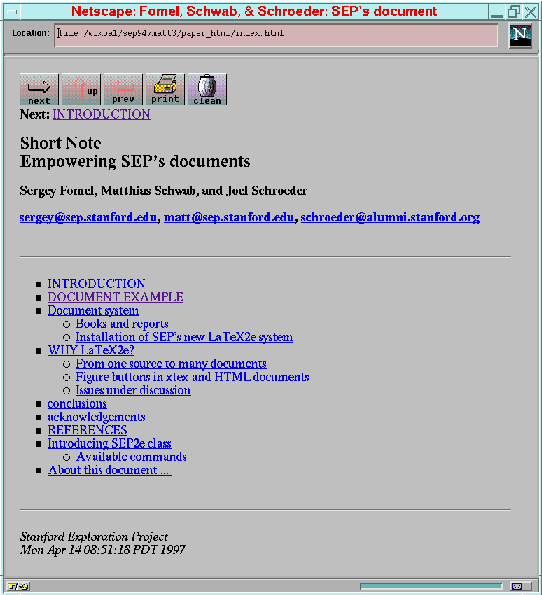 |
The arrival of LATEX2e at SEP enhanced our LATEX typesetting system and led us to overhaul SEP's customized macros. The revised system enables us to use the latex2html script Drakos (1996) to publish our documents routinely on the Internet. Additionally, we improved the communication between a document's makefile and its corresponding LATEX file. Finally, we replaced a gigantic c-shell script (texpr) that governed SEP's entire document processing, by a set of small Perl scripts. These Perl scripts are easier to maintain because they deal more flexibly with a wide range of processing choices. We hope we can share our customized LATEX2e typesetting system with other communities such as SEG, TRIP (Rice University), or CWP (Colorado School of Mines.)
In this paper, we first present a short example of a reproducible SEP document. In the electronic version of the document, this article can be turned into an interactive or standard HTML version, several DVI versions, and, of course, a Postscript version. The second part of the article states the basic author and reader commands (make targets), discusses the most important new features, and lists unresolved issues and goals. In the appendix, we include an annotated table of all SEP macros.
Former SEP students, especially Martin Karrenbach, Joe Dellinger, and Kamal Al-Yahya, wrote custom made LATEX Goosens et al. (1994); Lamport (1994) and TEX Knuth (1984) macros to enable Geophysics -style layout and reproducible figures. We have translated these SEP macros to LATEX2e, the modern LATEX standard Kopka and Daly (1995). Authors at SEP can find a more elaborate document example in /usr/local/src/our/sephelp/textour/paper.tex.
 |